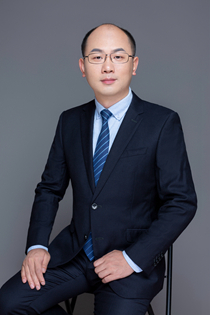1、2009年6月,毕业于武汉大学电气工程学院,获学士学位;
2、2014年6月,毕业于浙江大学电气工程学院,获博士学位。
|
师资队伍
|
 |
学历:博士
职称:教授,博导/硕导
邮箱:zengerzheng@126.com
学习经历
1、2009年6月,毕业于武汉大学电气工程学院,获学士学位;
2、2014年6月,毕业于浙江大学电气工程学院,获博士学位。
工作经历
1、2014年7月至今,重庆大学电气工程学院,2017年9月聘任为副教授,2018年6月聘任为博士生导师;
2、2018年7月–2019年7月,新加坡南洋理工大学(Nanyang Technological University),博士后。
研究领域
1、新型电力电子器件封装集成及应用;
2、新能源并网变流器运行控制与可靠性。
[1] Wang Yulei, Zeng Zheng, Long Teng, Sun Peng, Wang Liang, Zou Mingrui. Impedance-matching shunt: Current sensor with ultrahigh bandwidth and extremely low parasitics for wide-bandgap device[J]. IEEE Transactions on Power Electronics, 2022, 37(10): 11528-11533.
[2] Wang Liang, Zeng Zheng, Sun Peng, Ai Shengxiang, Zhang Jiawei, Wang Yulei. Electric-field-dominated partial discharge in medium voltage SiC power module packaging: Model, mechanism, reshaping, and assessment[J]. IEEE Transactions on Power Electronics, 2022, 37(5): 5422-5432.
[3] Peng Sun, Zheng Zeng, Liang Wang, Yulei Wang, Xudong Han. Online deformation characterization for electro-thermal-mechanical effect of power module via confocal methodology[J]. IEEE Transactions on Power Electronics, 2022, 37(2): 1195-1200.
[4] Liang Wang, Zheng Zeng, Peng Sun, Yue Yu, Kaihong Ou, Jin Wang. Current-bunch concept for parasitic-oriented extraction and optimization of multi-chip SiC power module[J]. IEEE Transactions on Power Electronics, 2021, 36(8): 8593-8599.
[5] Zheng Zeng, Jin Wang, Liang Wang, Yue Yu, Kaihong Ou. Inaccurate switching loss measurement of SiC MOSFET caused by probes: Modelization, characterization, and validation[J]. IEEE Transactions on Instrumentation and Measurement, 2021, 70, 1002014.
[6] Zheng Zeng, Xin Zhang, Frede Blaabjerg, Hao Chen, Tianfu Sun. Stepwise design methodology and heterogeneous integration routine of air-cooled SiC inverter for electric vehicle[J]. IEEE Transactions on Power Electronics, 2020, 35(4): 3973-3988.
[7] Zheng Zeng, Xin Zhang, Frede Blaabjerg, Linjing Miao. Impedance-oriented transient instability modeling of SiC MOSFET intruded by measurement probes[J]. IEEE Transactions on Power Electronics, 2020, 35(2): 1866-1881.
[8] Zheng Zeng, Xin Zhang, Zhe Zhang. Imbalance current analysis and its suppression methodology for parallel SiC MOSFETs with aid of a differential mode choke[J]. IEEE Transactions on Industrial Electronics, 2020, 67(2): 1508-1519.
[9] Zheng Zeng, Xin Zhang, Xiaoling Li. Layout-dominated dynamic current imbalance in multichip power module: Mechanism modeling and comparative evaluation[J]. IEEE Transactions on Power Electronics, 2019, 34(11): 11199-11214.
[10] Zheng Zeng, Xiaoling Li. Comparative study on multiple degrees of freedom of gate driver for transient behavior regulation of SiC MOSFET[J]. IEEE Transactions on Power Electronics, 2018, 33(10): 8754-8763.
[11] 曾正, 邵伟华, 胡博容, 陈昊, 廖兴林, 陈文锁, 李辉, 冉立. SiC器件在光伏逆变器中的应用与挑战[J]. 中国电机工程学报, 2017, 37(1): 221-232. (中国电机工程学会优秀论文)
[12] 曾正, 邵伟华, 宋春伟, 李辉, 冉立. 电压源逆变器典型控制方法的电路本质分析[J]. 中国电机工程学报, 2016, 36(18): 4980-4989. (中国电机工程学会优秀论文)
[13] 曾正, 邵伟华, 冉立, 吕志鹏, 李蕊. 虚拟同步发电机的模型及储能单元优化配置[J]. 电力系统自动化, 2015, 39(13): 22-31. (F5000顶尖论文,中国电机工程学会优秀论文)
[14] 程冲, 杨欢, 曾正, 汤胜清, 赵荣祥. 虚拟同步发电机的转子惯量自适应控制方法[J]. 电力系统自动化, 2015, 39(19): 82-89. (F5000顶尖论文,中国电机工程学会优秀论文)
[15] 曾正, 杨欢, 赵荣祥. 多功能并网逆变器及其在微电网中的应用[J]. 电力系统自动化, 2012, 36(4): 28-34. (F5000顶尖论文)
研究领域
1、国家自然科学基金面上项目,高功率密度SiC逆变器的3D封装与热管理研究,2022/1-2025/12,项目负责人;
2、国家自然科学基金青年项目,车用多芯片并联SiC模块电热应力分布规律和调控方法研究,2017/1-2019/12,项目负责人;
3、国家重点研发计划,宽禁带半导体电机控制器开发和产业化,2017/7-2021/6,子课题负责人;
4、国家重点研发计划,柔性直流输电装备压接型定制化超大功率IGBT关键技术及应用,2016/6-2019/5,子课题负责人;
5、重庆市自然科学基金项目,高压大容量功率半导体器件,2022/1-2024/12,项目负责人;
6、重庆市留创计划创新项目,车用SiC功率半导体器件的低感封装与寿命评估研究,2020/6-2021/7,项目负责人;
7、重庆市自然科学基金项目,基于逆变器自适应阻抗重塑的新能源发电系统谐波稳定化研究,2016/7-2019/6,项目负责人。
研究成果
1、主持国家重点研发计划子课题2项、国家自然科学基金2项、省部级项目3项、横向及其他各类项目10余项;
2、在科学出版社出版学术专著2部,在IEEE汇刊、中国电机工程学报发表论文40余篇,授权发明专利14项(已转让3项);
3、获教育部自然科学一等奖、北京市科技进步二等奖各1项,获浙江大学首届优秀博士学位论文奖;
4、入选中国高被引学者榜、全球前2%顶尖科学家榜、第三代半导体卓越创新青年。
学术兼职
1、中国电工技术学会,电工产品环境技术专业委员会委员;
2、中国宇航学会,空间太阳能电站专业委员会委员;
3、期刊CSEE Journal of Power and Energy Systems,副编辑。
学术专著
[1] 曾正. SiC功率器件的封装测试与系统集成[M]. 北京: 科学出版社, 2020.
[2] 曾正, 赵荣祥, 杨欢. 柔性并网逆变器控制技术[M]. 北京: 科学出版社, 2020.